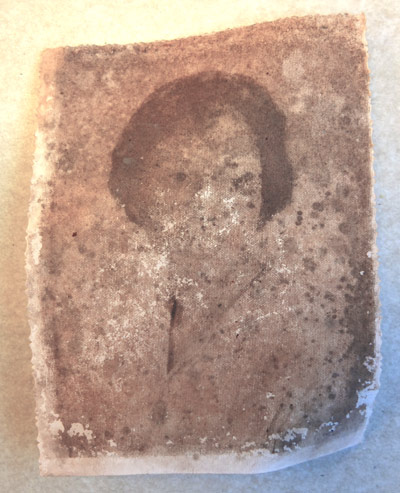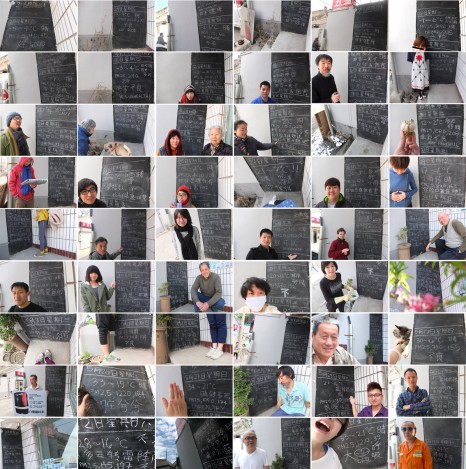å‚åŠ äº†ä¸‰å€‹è‰ºæœ¯å®¶èˆ‰è¾¦çš„â€œä¸‰è¡Œå¯¦é©—å®¤â€å·¥ä½œåŠï¼Œæ¯ä¸€å€‹åƒèˆ‡è€…寫了一個三行詩給å¦å¤–一個ä¸ä¸€å®šèªè˜çš„人,在ç£å¸¶ä¸Šæœ—讀錄音。æ¯ä¸€å€‹äººéŒ„完之後,組織者收集了åˆæŒ‰ç…§äººåé‡æ–°ç™¼çµ¦æ¯ä¸€å€‹äººå¯«çµ¦ä»–的三行朗讀。發完組織者說“好,那我們今天就這樣çµæŸå•¦ï¼Œä½ è¦è‡ªå·±å›žå®¶å¾Œæ‰¾æ–¹æ³•æ’æ”¾ä½ çš„ç£å¸¶â€ã€‚當然家裡沒有,ä¸çŸ¥é“è¦ç‰å¤šä¹…æ‰èƒ½è½åˆ°é€™é¦–詩就拿著這個神秘的å°ç£å¸¶èµ°ã€‚
工作åŠä¹‹å¾ŒåŽ»æ‰¾æˆ‘姑å§ä¸€èµ·åƒé£¯ï¼Œå¥¹å‘Šè¨´äº†æˆ‘大伯éŽä¸–了。第二天她和其他阿伯去收拾大伯的屋,è¦æº–備把他30年一個人ä½çš„房å還給政府。他們回來之後給我一個è€è¡ŒæŽç®±ï¼Œè£¡é¢æ”¾äº†ä¸€äº›å¤§ä¼¯çš„æ±è¥¿ã€‚å…¶ä¸æœ‰ä¸€å€‹å°AIWA放音機, 外殼壞了但是還能用。è½äº†ä½ 給我寫的三行詩,è½åˆ°åœ¨é‚£ä¸‰è¡Œä¹‹é–“æˆ‘å’Œä½ ä¹‹é–“çš„è·é›¢ï¼Œä¹Ÿè¨±ä¹Ÿå°±æ˜¯é€™å€‹åœ°çƒä¸Šçš„æ¯ä¸€å€‹äººèˆ‡å¦å¤–一個人的è·é›¢ã€‚
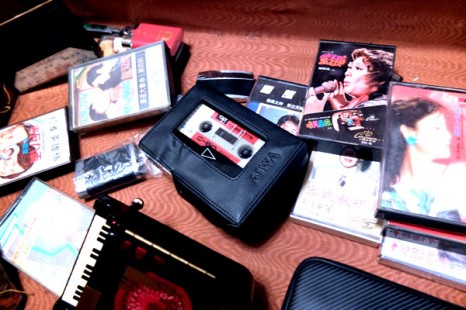
les mains négatives
by marguerite duras
关于一ç§é£Ž about one kind of wind
有一ç§é£Žå«æ—‹å¤´é£Ž
乡下特别多
专åšå事
çªç„¶ä»ŽèŒ…è‰é‡Œè·‘出
å’¬è°ä¸€ä¸‹
让人斜起脚走路
å•Šå‘€ å•Šå•Šå•Š
跳到水塘里去
——å°å®‰ 2013.03.11
one kind of wind called rotary head wind
particularly much in countryside
specializing in evil
Suddenly run out from the thatch
bite someone
make him walk sideling
ah oh ahahah
jump into the pond
——Xiao An 2013.03.11
Xiao An, born in 1964, one  of the representative poets of Feifeism. Graduated from a Military Medical University, turned out to be a nurse in a local psychiatric hospital. She lives in Chengdu currently.
translation series NO.2
Posted by cc | reply »å¤§å…”å病了 eldest rabbit sick
This is a nursery rhyme, this is a logical reasoning story, this is a horror case. For me, this is a poem. I don’t know who is the author, I just try to translate it to English.
大兔å病了,
二兔å瞧,
三兔åä¹°è¯,
四兔å熬,
五兔åæ»äº†,
å…å…”å抬,
七兔å挖å‘,
å…«å…”å埋,
ä¹å…”åå在地上å“æ³£æ¥,
åå…”å问他为什么å“?
ä¹å…”å说,
五兔å一去ä¸å›žæ¥!
Eldest rabbit sick,
2nd rabbit looked,
3rd rabbit bought medicine,
4th rabbit decocted,
5th rabbit died,
6th rabbit carried,
7th rabbit dug,
8th rabbit buried,
9th rabbit sat on the ground crying,
10th rabbit asked him why?
9th rabbit said,
5th rabbit would never come back!
translation series No.1
Posted by cc | reply »notes from the yangtze (holdings), HIT, strike, limited
It all started with an image, though one that really came into a so to speak light before it even existed. One sees, firstly. Punctum as a form or attention, filter or framing device——an interruption in the act of seeing which triggers a refraction where association is the flipping upside-down of the mirror as much as a natural stream of thought. Oh. Constantly grasping at words. Try to describe flows, try to pick up words that describe people: 散文诗人, the great essayist, experimental folk maker. One is never enough, of course——artist, writer, activist——but if i could describe to you a process instead then perhaps i wouldn’t have gone through it all in quite the same way anyway. Words destroy me, time passes, and in the meanwhile we play a few games.
It all started with a seasick steadicam. It was the bane of those first few weeks of working, becoming one of those challenges that one cannot give up on simply because you’ve already wasted too much time trying and cannot bear to let go in vain. And those many hours spent walking back and forth the third floor flat tinkering with an orange handsaw arm, PET bottle caps and various metal washers came out of a whim, really, based upon a beginner’s rereading of The Politics of Disappearance and moving around in Hong Kong. Movement, restlessness, sitting at a desk overlooking noisy Shanghai Street looking for the right troubleshooting video to make the damned steadicam work as it should. Sitting as restless as distraction, the wrong videos lead to other flows, like centripetally-spinning eggs scrambled inside the shell and shanzhai effecting tilt-shift optics with video and image-editing software.
And we continue to work within that distraction, as if the Cantonese version of looking (眱) already directed our eyes askance, the Scheimpflug principle was made physical as if we were moving throughout the city while laying down. Or seeing through a viewfinder, especially when mounted on a seasick steadicam held at waist-height. Tilt-shift is a subtle change in perspective, and your weak limb makes everything feel more distant, passive but with uncertain intention like sleeping next to someone with their back turned to you. I wonder if feeling distance from these images makes one more of a subject or less of one.
He says, “I am thinking. What if the body were not important?”
We keep walking along an overpass, and she comes to match our pace on my right, listening. She interrupts him at one point, and when she closes her statement with, “Maybe it’s an over-interpretation“, her body moves away from us while keeping the tempo.
Later while they are opening up the furled black banner in her arms, I say to him, “In principle, we should be free. But with the body there is possession. And with possession there is the basis for all socio-political conflict.” We stop at an intersection, in the middle of the street. Some people sit down.
It could have all started from there. He had warned me about getting arrested, but for all the supposed escalation it starts raining and traffic is restored. Everyone shoots images of everyone else. The three-man police film crew make a tilt-shift view, their camera perched on a gaffer pole above the crowd, one with his hands following gently on the shoulders of the gaffer. Everyone is in close proximity; the third is close behind.
She writes, for instance, “the Polis, properly speaking, is not the city-state in its physical location; it is the organization of the people as it arises out of acting and speaking together, and its true space lies between people living together for this purpose, no matter where they happen to be.†The “true†space then lies “between the people†which means that as much as any action takes place somewhere located, it also establishes a space which belongs properly to alliance itself.
—Judith Butler, “Bodies in Alliance and the Politics of the Street“
When you look up tilt-shift photography on Wikipedia, you will find an image of Hong Kong viewed from Victoria Peak, as if that particular perspective and reference were made for that kind of displacement; distortions require further tweaking before we realise that the spaces of camaraderie encompass kilometers and the ones around them hone in the millimeters of a lens during public conflict. Focus shifts while waiting in civic procession: a boring walk, intermittent conversation, a hand-painted sign. She asks how we can change the circumstances. It is uncertain whether or not the question is real, let alone try to imagine jouissance or our own semblance. Keep on walking, they say, there’s nothing to see here.
Posted by 丫 | reply »ä»Žæœ€åˆï¼ˆçˆ±ï¼‰çš„å°†æ¥æ—¶ on the first, future of love
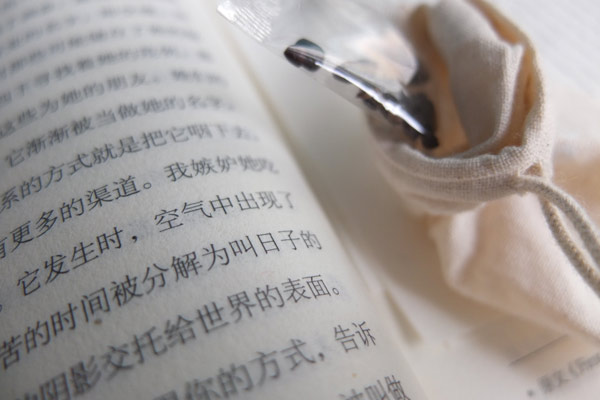
I told her about how your gifts are always somehow a burden. You know I’ll keep them, don’t you, all this junk offloaded over the course of these years, it’s moved with me across the continent and across the city, taller piles each time, folders and envelopes and things scrawled with HB pencil at various degrees.
But maybe this time I can finally part with something, fortunate doubles, two gifts that i already have. One about a month older, given as a free gift at a liquid nitrogen frozen ice cream parlour (fashionable sunflower or more fashionable morning glory?), and the other, just a day or two younger than yours, when I bought the same issue of a literary bi-monthly not recognising where those ripped pages had come from. I’ll daisy chain your generousity, hoarder friend, no matter how i cringe inside when he talks about change. and it wasn’t even the change which we feared, just the way he said it. haven’t you told me many times to let go?
它å‘生时,空气ä¸å‡ºçŽ°äº†å«åšå¤©æ°”çš„å˜åŒ–,而æ¤æ—¶ä½Žé£žçš„åå¼¹ä»ç„¶è¢«å«åšæœ‹å‹ï¼Œç—›è‹¦çš„时间被分解为å«æ—¥å的间隔。在那时,太阳ä»ç„¶æ©å® 这世界的事物,让它们将å¶å°”的阴影交托给世界的表é¢ã€‚æ¯å¤©éƒ½æœ‰äº›ä¸œè¥¿æŽ‰è½åœ¨æˆ‘身上,我的温度改å˜ç€ã€‚温度是å¦ä¸€ç§æé†’ä½ çš„æ–¹å¼ï¼Œå‘Šè¯‰ä½ ä½ åªæ˜¯è‡ªå·±ï¼Œè€Œä¸æ˜¯åˆ«çš„ä»€ä¹ˆï¼›å®ƒè®©ä½ å’Œå‘¨å›´çš„ä¸€åˆ‡åˆ†å¼€ã€‚é‚£äº›æ¸©åº¦çš„å˜åŒ–被å«åšæƒ…绪,它们有ç€å¥½çŽ©çš„外国åå—,但我已ç»è®°ä¸å¾—它们了。对于å‘生在我身体之外的任何事情我都没有记忆能力。我记ä¸å¾—该如何准确地说这个çŸè¯ï¼šâ€œæˆ‘抱æ‰ã€‚â€
This was when changes in the air were known as weather, when low-flying bullets were still called friends, and periods of suffering were broken up into intervals called days. Back then, the sun still honored the world’s objects by letting them contribute the occasional shadow to the surface of the world. Everyday something fell on me and my temperature changed. Temperature was another way to remind you that you were only yourself and nothing else; it let you feel apart from everything around you. These changes of temperatures were called moods and they had interesting foreign names, but I no longer recall them. I have no memory for anything that happens outside my body.
I cannot recall the precise words for the phrase: “I’m sorry.”
本∙马å¯æ–¯ Ben Marcus,from that literary bi-monthly, on the first, future of love(但汉æ¾ç¿»è¯‘)…
Posted by 丫 | reply »preliminary notes on ice house street
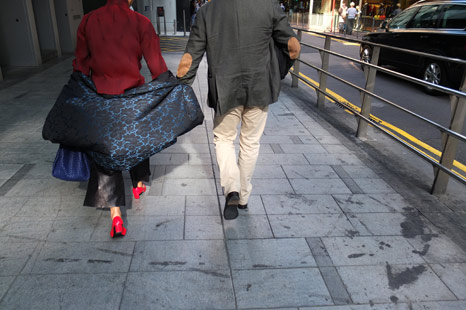
#今天å¦äº†ä»€ä¹ˆ# Realising today that we’re only speaking in colours, collaborations “no bad, only un-good”——meaning we work hard to reserve judgement, critique, oh, inauthentic observer, otherwise catty once becoming “a life-long association that would change the world”.
At the end of August, 1844, Engels passed through Paris, en route to his employment in Manchester, England, from visiting his family in Barmen (Germany). During 10 days in the French capital, he met Marx (for the second time).
Collaboration means meeting on occasion, sometimes intensively, we laugh at the easy jetset, asking lots of questions in diversion, desiring of the “tranquility of knowledge”. But that wasn’t it. This is non-knowledge, collaboration in colour, yes, Anastas/Gabri, Bester/Kishop or WoofShop, comparative studies as variations on a what, what you want, define and argue, get lost searching for the sea, in Elements, continue softer, what you want.
Would the ‘urban entropic conclusion’ require a certain withdrawal from the social, identity radii, we’re not obligated, her islands, come out only for exposure and/or discomfort. Rearrange the flat, morning study sessions, a cheap coffee maker and a broken electric stove. But it wasn’t really broken. Engage out of what you know, engage to counter what you know; they look similar, maybe, but stylistically…approach, a rationing, an investigation. What is continuity, in the end (har har har), but the careful arrangement of objects and the nice surprise that he even noticed?
Posted by 丫 | more »i wish i knew how it feels to be free
thank you to king689soulclassics
we wrote twice last year. growing smaller in our livelihood. making reparations, finding ourselves present, losing words of reflection for bullshit become routine. it’s an alienating experience to observe others speaking in endless strings of aphorism and cliché, like miraculously knowing the code for things that you did not care to know about. flooded gates . cinema and the sound of air conditioning . the ballad of the broken birdie records, that was forever.
you can describe things, but you cannot tell them.
she said we made it up to overcome change, that forever . because the passing arcs of the sun and moon were just too much. the drummer’s steady hands were deceiving, when it had only been about the joy and trauma of difference that really counted . “difference and deferral” . counting . rational concepts . and a one. and a one.
like a new way of seeing something.
two, three. counting and singing again, rushing into nines and ten. time was not the matter at hand, and i could only otherwise imagine some kind of spatial parameter (cigarette, balcony, distance from one apartment to another), but of course it’s less rational than that, our descriptions are as infinite as desire. we’ll be é è°± one day.
it sounds too prescribed, doesn’t it——sticking to the score——exactly what we didn’t want. so instead we became impulsive, 花心 flowery hearts, the wallow, those hands grabbing at your face, fear, the sort.  no……please ask me to write songs instead, wait for that moment of forever . two times a year at least.
Posted by 丫 | more »